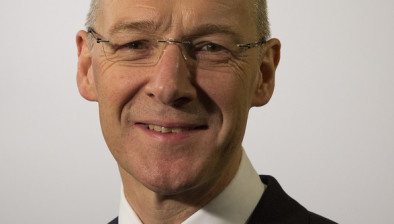Scottish Government Budget Bill passes Stage 1

Kate Forbes
Proposed legislation to implement Scotland’s Budget for 2021-22 has passed its first parliamentary hurdle as MSPs voted to endorse the general principles of the Budget Bill at Stage 1.
MSPs also approved the Scottish Rate Resolution, setting all income tax rates and bands.
The budget addresses the challenges of the ongoing pandemic and lays the foundations for recovery. It includes a 12-month extension of 100% rates relief for retail, hospitality, leisure, aviation and newspaper businesses, £1.1 billion for jobs and skills, record spending for health services, an £11.6bn settlement for local government and new funding to tackle climate change.
Finance secretary Kate Forbes said: “I have sought to engage constructively to deliver a budget that meets the needs of the nation. We have listened and we have delivered on key asks.
“Today’s vote sends a signal that this parliament can work together during the national emergency to support our economy and public services, continue the vaccination programme and drive our recovery from the pandemic. I remain committed to further dialogue with all parties in the coming days to build and reflect consensus across parliament and secure the budget’s passage.”
She added: “I also welcome parliament’s approval of our tax policies, which deliver the certainty and stability that is needed from the tax system for individuals and businesses in Scotland.
“No Scottish taxpayer will pay more income tax in 2021-22 than they do now on their current income and, for a fourth consecutive year, more than half of Scottish income taxpayers will pay less tax than if they lived anywhere else in the UK.”
Commenting before MSPs approved stage 1 of the budget, David Lonsdale, director of the Scottish Retail Consortium, said: “Whilst not perfect, there is much within the proposed Scottish Budget that retailers can get behind, at what is an incredibly challenging time for the industry in Scotland which remains under the shadow of Covid. The extension to business rates relief and the support for consumer spending – through the protection of ordinary taxpayers from rises in income tax rates and rises in council tax - are very welcome.
“With much of the industry in the depths of its biggest crisis in decades, and large swathes of stores currently closed for a third time in less than a year, more support is likely to be required. Reopening stores will itself not be a panacea for the industry, as shops will be unable to trade at capacity due to physical distancing and caps on the number of customers in stores. Ministers should stand ready to act to stimulate consumer spending and economic transactions, perhaps through a High Street Stimulus Scheme as Northern Ireland has reaffirmed today it is committed to.”
He added: “Firms are looking for as much certainty as possible. Hopefully none of these pro-growth measures will be diluted by parliamentary horse-trading over the next week or two in order to secure a Budget accord.
“Robust debate and scrutiny of the Budget over the coming days is both right and necessary, however any failure to pass a Budget would add a thick layer of uncertainty at what is the most challenging of economic times for many firms.”










